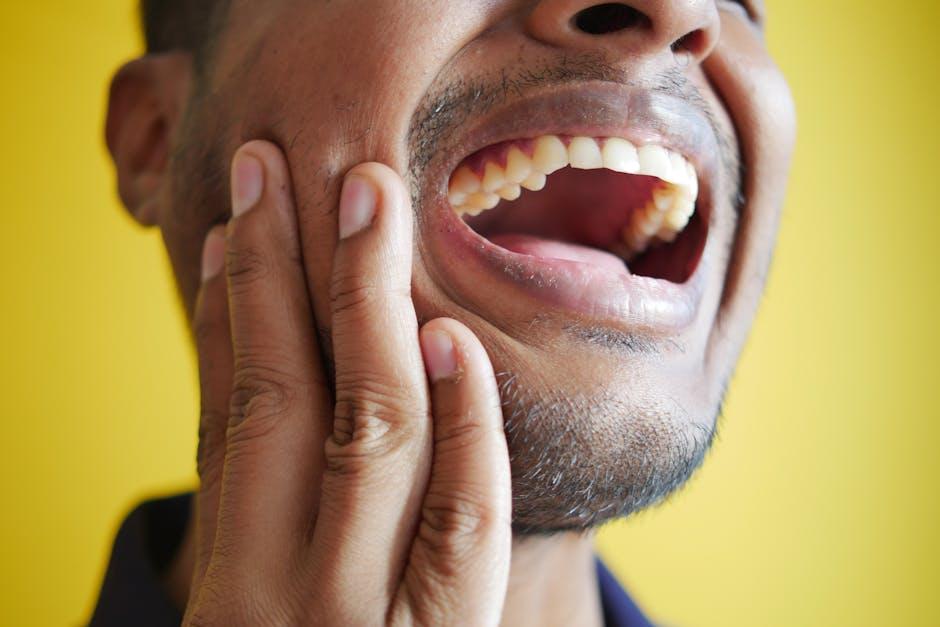
What Qualifies As A Dental Emergency? – Texas A&M
Dental emergencies can happen unexpectedly and often cause significant pain or discomfort. For students, staff, and residents in Texas, knowing when to seek immediate dental care and what exactly counts as a dental emergency is crucial. In this article, Texas A&M helps you distinguish between urgent dental situations and those that can wait for a routine appointment. Read on to get expert advice and practical tips on managing dental crises effectively.
Understanding Dental Emergencies
A dental emergency refers to any oral health issue that requires immediate attention to save a tooth, stop ongoing pain, or prevent infection. Prompt care can often prevent more complicated problems or irreversible damage to your mouth and jaws.
Common Types of Dental Emergencies
- Severe toothache: Intense, persistent pain often signals infection or decay that can’t be ignored.
- Knocked-out tooth (Avulsion): A permanent tooth that’s been completely dislodged from the socket.
- Chipped or fractured teeth: Broken teeth causing sharp pain or bleeding.
- Abscess or dental infection: A painful swelling filled with pus requiring urgent treatment.
- Lost or damaged dental restorations: Such as crowns, fillings, or bridges causing discomfort or sensitivity.
- Soft tissue injuries: Cuts, bleeding, or broken lips, tongue, or gums from trauma.
- Broken braces or wires: Causing injury to mouth or interfering with chewing and speaking.
How to Recognize a Dental Emergency
Not every tooth pain or gum irritation is a dental emergency. Use the checklist below to decide if your situation needs urgent care:
| Symptom or Situation | Emergency? | Action to Take |
|---|---|---|
| Severe toothache lasting over 24 hours | Yes | Contact emergency dentist immediately |
| Knocked-out permanent tooth | Yes | Rinse and reinsert tooth if possible, visit dentist within 1 hour |
| Lost filling or crown without pain | No (Urgent, not emergency) | Schedule dental appointment soon |
| Bleeding gums without injury | No | Maintain oral hygiene; see dentist if persistent |
| Swollen face or jaw with pain | Yes | Seek immediate dental or medical care |
Why Timely Treatment Matters
Ignoring a true dental emergency can lead to severe complications such as permanent tooth loss, bone infections, or systemic health issues. Infections in the mouth can spread quickly and affect other parts of your body. Getting prompt treatment helps reduce pain, protect your smile, and avoid costly future procedures.
What to Expect at Texas A&M Emergency Dental Care
Texas A&M provides expert emergency dental services with a compassionate approach. When you contact the campus dental clinic for an emergency, expect:
- Quick evaluation and diagnosis of your problem
- Effective pain management and infection control
- Restorative treatments to save the tooth whenever possible
- Guidance for follow-up care and prevention strategies
Practical Tips for Handling a Dental Emergency
In the event of a dental emergency, staying calm and knowing what to do can significantly improve outcomes. Here are some helpful tips:
- Save any tooth fragments: If you chip or break a tooth, keep the pieces and bring them with you to the dentist.
- Control bleeding: Use clean gauze or a damp cloth to apply gentle pressure to the affected area.
- Manage pain: Over-the-counter pain relievers like ibuprofen can help; avoid aspirin as it can increase bleeding.
- Protect a knocked-out tooth: If possible, gently rinse it with water and place it back in the socket or store it in milk or saliva to keep it moist.
- Avoid eating hard or hot foods: Stick to soft, cool foods until treated.
- Act promptly: Don’t delay contacting your emergency dentist, especially if swelling or severe pain is present.
Case Study: A Texas A&M Student’s Experience with a Dental Emergency
Jessica, a sophomore at Texas A&M, experienced a knocked-out tooth while playing intramural soccer. Remembering her emergency dental training, she immediately located the tooth, rinsed it with water, and went straight to the campus dental clinic. Thanks to prompt care, her tooth was successfully reinserted and stabilized, avoiding extraction.
Frequently Asked Questions About Dental Emergencies
Q1: Can a dental emergency happen at any time?
A: Yes, dental emergencies can occur anytime, which is why Texas A&M offers after-hours emergency dental services.
Q2: Is a mild toothache considered an emergency?
A: Mild toothaches are usually not emergencies but should be evaluated soon to prevent worsening.
Q3: What if I don’t have a regular dentist?
A: Texas A&M dental clinics provide care for students and community members regardless of prior dental history.
Conclusion: Know When to Seek Emergency Dental Care at Texas A&M
Recognizing what qualifies as a dental emergency is essential to protect your oral health and avoid unnecessary complications. From sudden severe pain and knocked-out teeth to dental infections and facial swelling, timely professional care from Texas A&M’s expert dental team can save teeth and ease discomfort. Keep our practical tips in mind, and don’t hesitate to contact Texas A&M emergency dental services if you face a dental crisis. Your smile’s health is worth immediate attention!
Need Emergency Dental Help at Texas A&M? Visit our Emergency Dental Services page or call the Texas A&M dental clinic for guidance and quick appointments.


